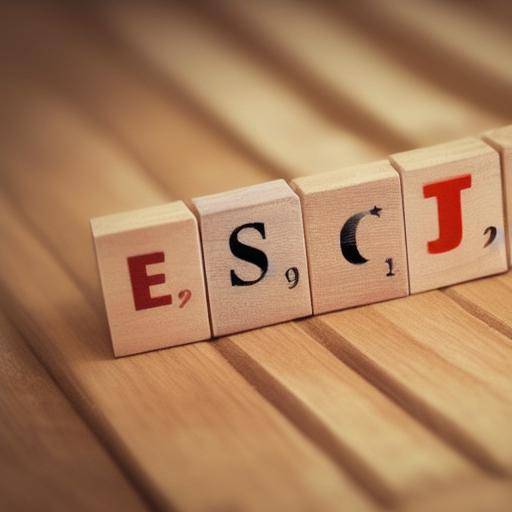
Introduction
In everyday life, we face constant challenges that require a high level of motivation and personal commitment. However, maintaining that motivation can be challenging, especially in situations of stress or significant changes. It is at this time that self-evaluation takes on a fundamental role in our personal and professional development. In this article, we will explore the importance of regular self-evaluation as a tool to maintain motivation and its impact on personal development. We will discover how self-evaluation can enhance motivation, help us overcome obstacles and achieve our goals.
History and Background
Self-assessment is a process that has been fundamental in the personal and professional development of people throughout history. Since ancient times, philosophers, leaders and thinkers have recognized their importance. In fact, in ancient Greece, the maximum "know yourself" embodies the essence of self-assessment. This concept has evolved over time and has been fundamental in movements such as humanism and modern psychology.
Self-assessment has been the catalyst of important developments, such as Maslow's theory on the hierarchy of needs or the theory of self-determination. These milestones have contributed to the understanding of human motivation and its relationship with self-assessment, providing a solid basis for its implementation in everyday life.
Deep analysis
Self-assessment carries multiple benefits, from raising awareness of our strengths and weaknesses to allowing us to set realistic and measurable goals. It is a powerful tool that can help keep motivation in challenging moments. At the same time, self-evaluation involves facing challenges and recognizing areas of improvement, which can often be an obstacle in itself.
To understand the importance of self-assessment in motivation, it is crucial to analyze multiple perspectives and experiences. Scientific studies support the relationship between self-evaluation, motivation and satisfactory performance. Reviewing and understanding these analyses allows us to better understand how self-assessment can act as a catalyst for motivation.
Comprehensive review
Practical applications of self-assessment in everyday life are also fundamental. Analyzing real cases and best practices gives us a clear view of how people and organizations have integrated effective self-evaluation to maintain high levels of motivation, even in moments of adversity. The development of appropriate self-evaluation strategies and systems is essential for their effectiveness.
One crucial aspect to consider is how self-evaluation is perceived and applied in different contexts and cultures. The diversity of approaches and experiences enriches our understanding of self-assessment and its relationship with motivation, offering a solid perspective on its universal impact and adaptability to different scenarios.
Comparative analysis
By comparing self-evaluation with motivation and personal development, we find important synergies and differences. This allows us to identify how these concepts are complemented and how they can empower each other. By observing concrete examples and specific scenarios, it is possible to understand in detail how self-assessment can be a key booster of motivation and personal growth.
The key is to find a balance that allows us to make the most of these elements. Integrating self-assessment into our daily lives and harnessing their benefits helps us maintain high levels of motivation and achieve comprehensive personal development.
Practical Tips and Accessible Recommendations
To maximize the benefits of self-assessment, it is essential to adopt a number of recommendations based on research and practical experiences. Establishing a clear plan of action, keeping detailed self-assessment records, and undergoing external feedback are just a few examples of effective practices that can significantly improve our ability to maintain high levels of motivation through self-assessment. By implementing these tips, we can improve our self-consciousness, identify areas of improvement and maintain a proactive approach to our personal and professional development.
Perceptions of Industry and Expert Reviews
The opinion of experts and industry leaders is essential to enrich our understanding of self-assessment and its relationship with motivation. Collecting and analyzing the perceptions and experiences of leaders in various fields provides us with valuable information on how self-evaluation can positively impact multiple aspects of our lives, both in the workplace and in staff.
In addition, exploring emerging trends in industry gives us a privileged view of how self-evaluation will continue to evolve and its role in motivation, which can be crucial to anticipating future opportunities and challenges.
Case Studies and Real Life Applications
Case studies showing the practical application of self-assessment and its impact on motivation are fundamental pillars to illustrate its effectiveness. These cases allow us to understand how individuals and organizations have implemented self-assessment to overcome challenges, enhance their motivation and achieve exceptional results in their respective fields.
In analyzing these cases, we can identify patterns, successful strategies and lessons learned that we can apply to our own lives. This gives us a deeper understanding of how self-assessment can be a engine for change and growth in real-world situations.
Future Trends and Predictions
Looking forward, it is crucial to identify emerging trends related to self-assessment, motivation and personal development. Based on current research and expert opinions, we can anticipate significant changes and opportunities that will arise in the field of self-assessment. This understanding allows us to prepare ourselves proactively to embrace these trends and capitalize on future opportunities.
Conclusion
In short, regular self-evaluation plays a critical role in maintaining high levels of motivation and fosters comprehensive personal development. By self-evaluating, we can identify areas of improvement, take advantage of our strengths and stay focused on our goals. By understanding the relationship between self-evaluation, motivation and personal development, we can enhance our growth and achieve higher levels of personal and professional achievement and satisfaction.
Frequently asked questions
How can I integrate self-assessment into my daily routine to maintain high levels of motivation?
The integration of self-assessment into the daily routine can be achieved through dedicated time to reflect on our achievements, challenges and goals. Carrying a self-assessment journal can be an effective tool for this practice.
What is the difference between self-evaluation and self-criticism?
Self-assessment implies a balanced reflection on our strengths and weaknesses, while self-criticism tends to focus more on negative aspects. Self-assessment promotes integral development, while self-criticism can have a limiting impact on our motivation and self-esteem.
What are the common challenges in self-evaluation?
One of the most common challenges is to maintain a balanced approach between our strengths and weaknesses, as well as to avoid falling into excessive self-criticism. It may also be challenging to face external feedback, especially if it is critical.
What role does self-evaluation play in the workplace?
In the workplace, self-evaluation can be crucial for professional development, goal-setting and decision-making. It can also influence motivation, performance and job satisfaction.
What is the importance of receiving external feedback in the self-assessment process?
External feedback provides an additional and objective perspective that can enrich our self-assessment. It helps identify aspects that we could overlook and provides new and constructive views for our personal and professional growth.
What is the impact of self-evaluation on achieving long-term goals?
Effective self-evaluation contributes significantly to achieving long-term goals by allowing us to constantly adjust our approach, identify areas of improvement and keep us on track to success. It acts as a driver of self-discipline and persistence.
In conclusion, self-evaluation is a powerful tool that can enhance our motivation and personal development. By understanding its importance and implementing appropriate strategies, we can cultivate a deeper sense of self-consciousness, overcome challenges with confidence and maintain a proactive approach to our growth. By integrating self-assessment into our lives, we can unlock our maximum potential and reach higher levels of personal and professional performance and satisfaction.






















































